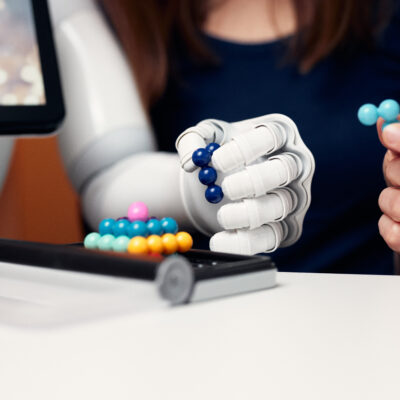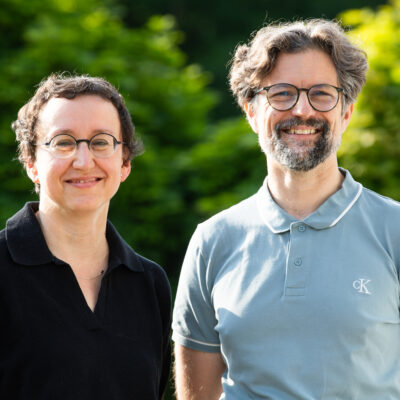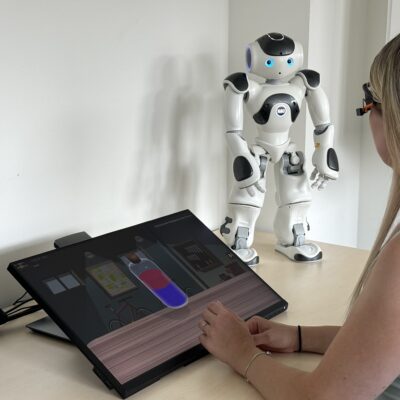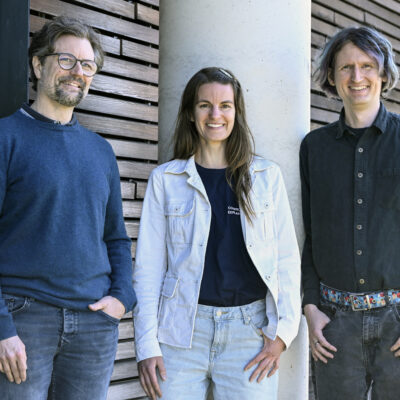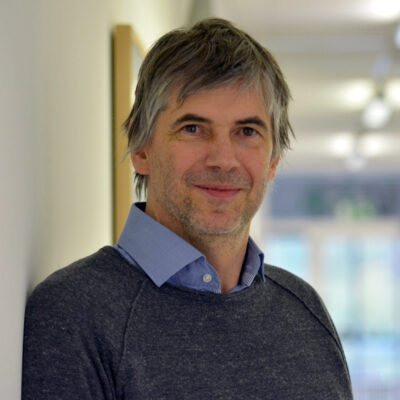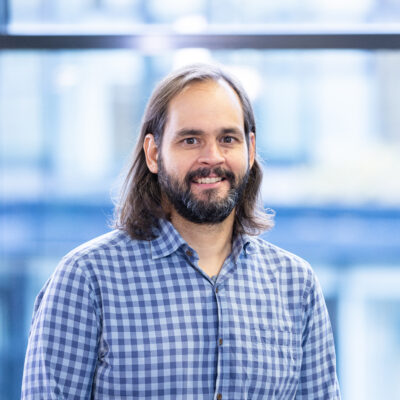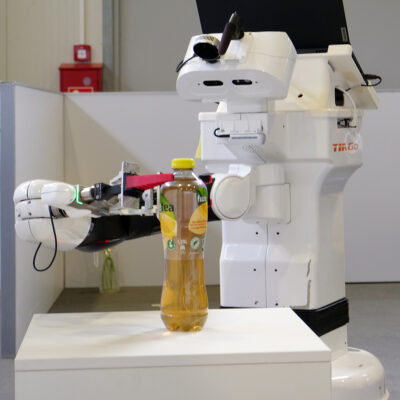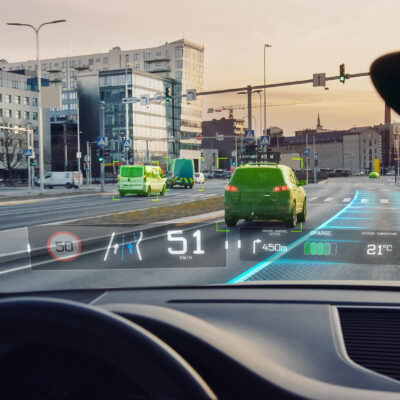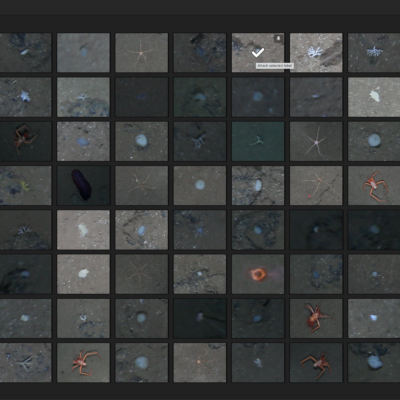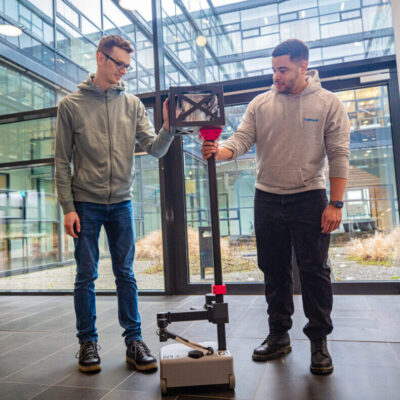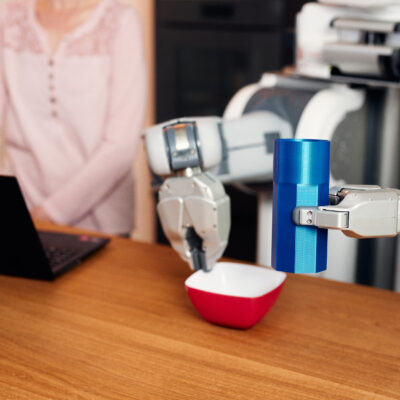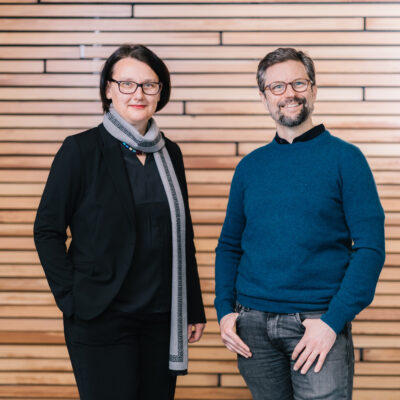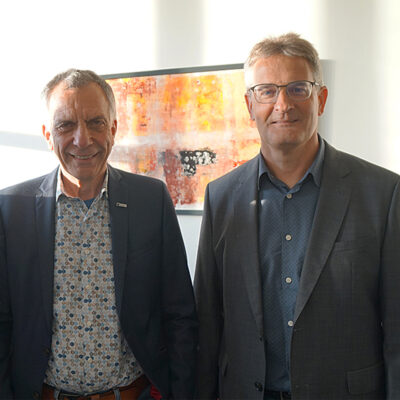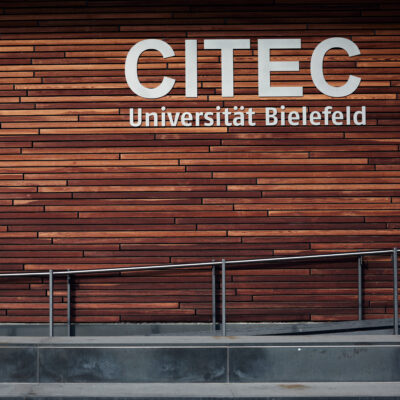© Robert/stock.adobe.com
WhatsApp data show: We often deceive ourselves
How active are we really in chats and how accurate is our self-perception? A new study using anonymized WhatsApp metadata shows how data-driven feedback can improve our understanding of communication and digital well-being.
Read more »© Bielefeld Univerity
How humans and AI work as a team
How can cooperation succeed between humans and AI? The FAITH focus area at Bielefeld University is researching the hybrid teamwork of tomorrow.
Read more »© TRR 318 und Sarah Jonek
Humans and Machines Learn Differently
Bielefeld researchers analyze in “Nature Machine Intelligence” how humans and AI systems learn new things and what this means for the future of Artificial Intelligence.
Read more »© TRR 318/ Stefan Sättele
Developing explanations together
After four years of intensive research, the Transregional Collaborative Research Centre 318 “Constructing Explainability” takes stock. In this interview, the two spokespersons share key insights.
Read more »© TRR 318
Robot Nao as an Attentive Explainer
How can a robot best support us linguistically in solving tasks? Researchers from TRR 318 Constructing Explainability have investigated this question.
Read more »© © Andreas Zobe
Making Better, More Explainable Medical Diagnoses with AI
Can artificial intelligence work side by side with doctors to help them make better diagnoses? A research team at Bielefeld University is dedicated to answering this question.
Read more »© Seventyfour/stock.adobe.com
„Machines learn to ‚understand‘ the real world“
How algorithms make the interaction between humans and technology more reliable – computer scientist Helge Rhodin in conversation.
Read more »© TRR 318
Looking at Explanations of AI in Context
How can explanations of artificially intelligent systems be made comprehensible, and what role does context play in this? These questions are the focus of the 3rd TRR 318 conference ‘Contextualising Explanations’, which will take place on 17 and 18 June in Bielefeld.
Read more »© Bielefeld University
‘We translate chemical reactions into maths’
Combined with biology and chemistry, mathematics offers new ways of modelling the microbiome and thus better understanding obesity: a key to targeted therapy.
Read more »© TRR 318/ Mike-Dennis Müller
‘Development of new interactive decision-making systems’
Bielefeld University has set up an independent research group to investigate explainable artificial intelligence (XAI) and its influence on human trust in AI. In this interview, its head Dr David Johnson talks about its aims and methods.
Read more »© Bielefeld University
Trust or distrust towards AI chatbots
How do users deal with the technology? Computational linguist Prof. Dr Hendrik Buschmeier talks about this in a lecture series of the Transregio “Constructing Explainability”. The recording is now online.
Read more »© Bielefeld University
Bielefeld team sets off for the RoboCup World Championships
Team of researchers and students faces international competition. Service robot TIAGo is to master everyday tasks.
Read more »© Bielefeld University
DataNinja presents innovations for trustworthy AI
The Research Training Group takes stock after three years of research, during which the team of doctoral students and established scientists worked on trustworthy AI systems and their embedding.
Read more »© Gorodenkoff/stock.adobe.com
“We want to know the limits of the algorithm”
Dr Petra Bevandić and Dr Robin Chan are teaching computer vision systems to deal with something unknown.
Read more »© Bielefeld University
Conference on the technology of argumentation machines
Ratio-24 at the university shows how technical systems can recognise argumentative structures using large language models. This can help to make opinion-forming more transparent.
Read more »© private
Analysing deep-sea images with AI
Bioinformatician Tim Nattkemper uses AI to protect underwater biodiversity in the EU project ‘BioProtect’
Read more »© Susanne Freitag
Neuroinformatician Helge Ritter honoured with symposium
150 guests look back on the work of the long-standing coordinator of the Cluster of Excellence CITEC. After 33 years at the university, the Faculty of Engineering bids farewell to the researcher on his retirement.
Read more »© Mike-Dennis Müller
“UniTeam” wins robot in international AI challenge
The group led by Bielefeld computer scientist Dr Andrew Melnik is successful at the world’s largest conference for machine learning.
Read more »© Aarhus University
How social should AI be?
Professor Johanna Seibt from Aarhus University is an expert in “Robophilosophy”. She gives an insight into her research in a lecture at Bielefeld University, which is now available as a video recording.
Read more »© pinkrabbit/stock.adobe.com
Finding the best route as quickly as possible every day
Doctoral students Elias Schede and Jasmin Brandt want their research to boost user confidence in AI.
Read more »© University of Bremen/Patrick Pollmeier
Robots with Common Sense
Bielefeld and Bremen academics work to make knowledge from different sources accessible in a machine-readable format.
Read more »© Universität Bielefeld/M. Adamski
Understandable insights into AI research
In a new research podcast, the researchers of the Collaborative Research Centre TRR 318 give an insight into their work and explain why explainable AI is an important step into the future of AI research.
Read more »© Bielefeld University
Branch office of Forschungszentrum Jülich established
Non-university research in the field of computational metagenomics
Read more »© Bielefeld University
New CITEC profile for broader research perspective
With a new research profile and a new organisational structure, CITEC will now work even more efficiently on future-oriented technologies.
Read more »
